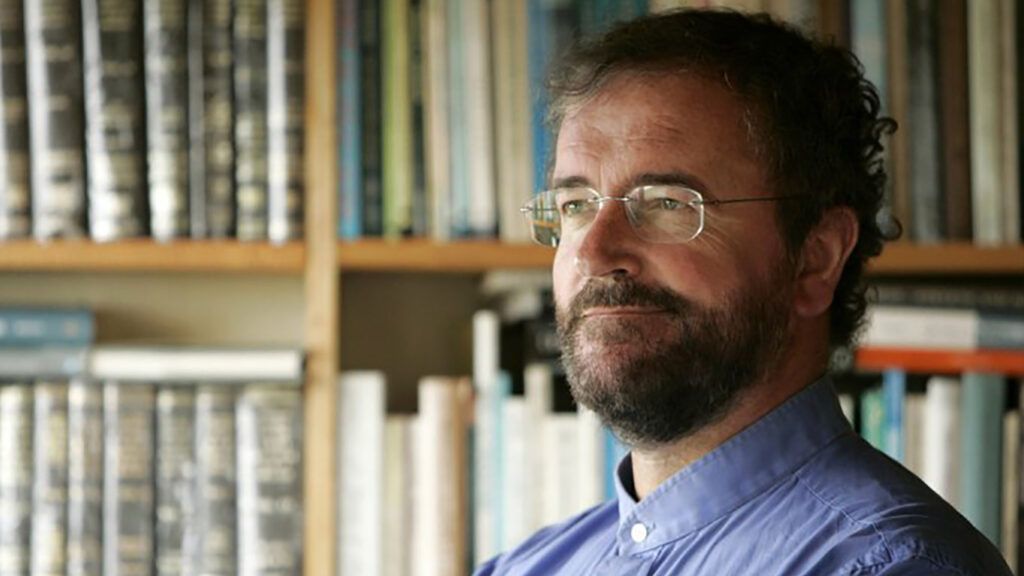The poet and philosopher John O’Donohue passed away in 2008, but his teachings and writings continue to guide the spiritual lives of people worldwide.
Born and raised in Connemara, Ireland, O’Donohue joined the priesthood when he was 18 and went on to get a Ph.D. in philosophical theology. In 1997, his first book Anam Cara catapulted him to intellectual stardom. He left the priesthood, but continued to be a spiritual leader through his writing and speaking.
O’Donohue devoted his life to pursuing and sharing spiritual enlightenment. His sudden death at the age of 52 shocked his followers. A new book, Walking in Wonder, collects several of O’Donohue’s conversations with Irish radio host, John Quinn, and features his thoughts, poetry and writing on finding wonder in the spiritual life.
Here are four key practices, O’Donohue identifies as being essential to opening the door to wonder:
1. Practice Absence and Presence
O’Donohue was fascinated by the concepts of absence and presence. Rather than seeing these two things as opposites, O’Donohue saw them as sisters. “The opposite of presence is not absence, but vacancy,” he said in a lecture included in Walking in Wonder called “Towards a Philosophy of Absence.” He believed that on earth, absence serves to remind humans of separation from God. Presence, on the other hand, he theorized, draws us closer to God.
He saw the practice of being present as essential for experiencing God. “When we experience real presence, we break through to that which is latently in us, that is eternal,” O’Donohue said.
Put another way, “If you really live your life to the full, you are activating the presence of God.”
2. Open Your Imagination
How does one begin to press into absence and presence? O’Donohue points to imagination as a crucial practice for opening up to these experiences.
“Real presence is the heart of the incarnation and it is also the heart of the Eucharist,” O’Donohue said. “This is where imagination works so beautifully with the absence and emptiness of life. It always tries to find a shape of words or music or color or stone that will in some way incarnate new presence to fill the absence.”
He identified imagination as the “threshold” to wonder. O’Donohue suggested the path to wonder required freeing imagination from the confines of childhood and fiction.
“Where the imagination is alive,” he said, “wonder is completely alive.”
Read a collection of John O’Donohue’s most inspiring quotes.
3. Practice Silence
O’Donohue’s study of Celtic spirituality revealed to him how fully Western busyness and noise deprived people of access to spirituality and wonder. He advised practicing silence as a way to grow closer to God.
Many people see silence as synonymous with loneliness and solitude. O’Donohue disagreed, arguing that spiritual silence is actually “the silence of intimacy.” In fact, he saw silence as an important building block for relationships.
“You can only relate to someone if you somehow have the courage and the need to inhabit your own solitude,” he said. “You can only relate out of your separateness.”
4. Experience the Joy of Memory
O’Donohue believed technological advancements were robbing people of the joy of memory, which he saw as a great source of wonder.
“You can actually go back within yourself to great things that happened to you and enjoy them and allow them to shelter and bless you again,” he said of the power of memory.
O’Donohue worried that in our attempts to distance ourselves from painful memories we robbed ourselves of the joy of our lives. He connected memory to the practice of being present.
“Memory keeps presence alive,” he wrote. “[It is] always bringing out of what seemed to be absent new forms of presence.”
Walking in Wonder: Eternal Wisdom for a Modern World is available wherever books are sold.





